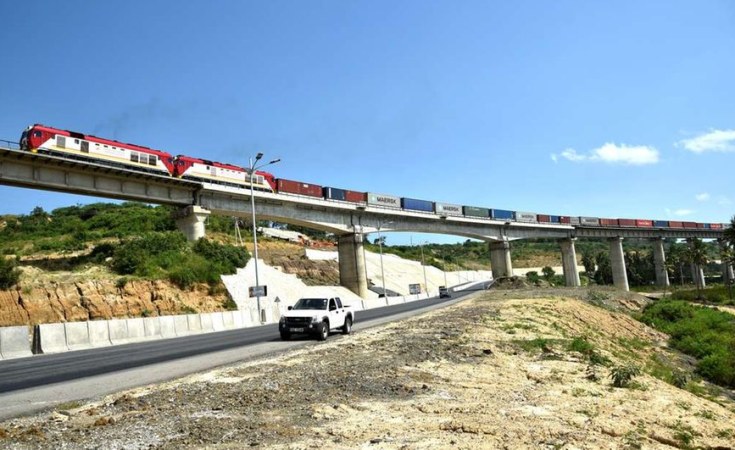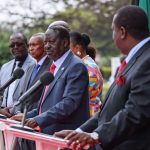As the world closely monitors the developments in US politics with the high stakes of whether Democrats or Republicans will lead the next American government, Kenya must strategically navigate its foreign policy to avoid being caught off-guard by the outcomes of Kamala-Walz and Trump-Vanice battle.
President Joe Biden’s administration has shown a strong interest in working closely with Kenya, likely due to the Democrats’ internationalist approach, which emphasizes cooperation with other countries, increasing US participation in international organizations, and providing aid to other nations. This has made Kenya a highly sought-after partner. However, without a tactical foreign policy, Kenya risks creating friction with other major players in the geopolitical arena.
The Kenya Kwanza administration, under President William Ruto, should not assume it can maintain a cozy relationship with global heavyweights without considering the interests of other nations. Previous administrations, including those of Presidents Mwai Kibaki and Uhuru Kenyatta, did not maintain strict neutrality but leaned towards the East, benefiting significantly from infrastructural developments.
Kenya’s relations with China improved markedly under Kibaki (2002–2013) and Kenyatta (2013-2022) through the “Look East” policy. This led to significant infrastructure projects, including the Nairobi-Thika Superhighway, Standard Gauge Railway, Nairobi Expressway, and Lamu Port-South Sudan-Ethiopia Transport (LAPSSET). These projects have transformed Kenya, particularly the marginalized northern regions, and include research facilities such as the Sino-Africa Joint Research Centre (SAROJEC) at Jomo Kenyatta University of Agriculture and Technology (JKUAT). Additionally, Confucius Institutes in various universities offer scholarships to many Kenyan students.
To affirm the strong relationship with China, President Ruto should attend the upcoming Forum on China–Africa Cooperation in Beijing, as he did with the Belt and Road Initiative (BRI) last year. For Kenya’s development in modernization, rail, road, ports, technology, electric vehicles, and housing, China is a crucial partner. For example, the Nairobi Expressway has created over 500 jobs for Kenyans. Although there have been isolated issues, most Kenyans would prefer Chinese involvement in projects due to their proven capabilities.
Our friends from the East have earned the trust of Kenyans. As Deputy President Rigathi Gachagua usually say it ‘listening to the ground,’ the same ground is currently asking why Kenya Kwanza hasn’t launched any flagship project. The current administration should not only focus on good governance, counterterrorism, human rights, and corruption in its dealings with the US but also enhance its infrastructure collaborations with China.
China has demonstrated a commitment to Kenya’s development, and the government should continue collaborating with Beijing on beneficial projects. China’s focus on infrastructure in Kenya offers a key to development and improved living standards.
While the relationship between Kenya and China has deepened based on mutual respect and win-win cooperation, Kenya must also maintain relationships with other global partners. A focus solely on one country at the expense of others could be detrimental. The Kenya Kwanza administration’s emphasis on ‘Economic Diplomacy’ should not overshadow the importance of balanced foreign relations.
If Democrats lose the presidential election to Republicans, who are likely to adopt a nationalist approach, Kenya could face challenges. Republican policies may prioritize US interests and unilateral diplomacy, which contrasts with the current multilateral approach essential in today’s complex global landscape.
President Ruto’s recent US tour has brought benefits worth over Ksh. 52 billion ($395.15 million), but some of these may only materialize if Kamala-Walz wins. If Donald Trump prevails, these benefits might not come to fruition. Moreover, these benefits are often tied to conditions, unlike Chinese aid, which typically comes without such strings attached. Critics of Chinese projects as ‘debt traps’ often ignore the tangible benefits, such as the SGR and Nairobi Expressway, which have brought real development rather than mere aid.
China’s commitment to Kenya’s industrialization demonstrates the depth of its respect and friendship, compared to other nations that focus on donations while interfering in Kenya’s internal governance. Kenya must attend the September FOCAC summit to negotiate trade deals that address the trade deficit with China and to reinforce its ties with the East. Strengthening this relationship will counter any perceptions of favoring the West and ensure continued assistance from a proven friend.
Working closely with China does not mean that we are against our other development partners but we fathom quite well the abilities of all our partners, therefore, we have to treat them equally.
The writer is a journalist and communication consultant





